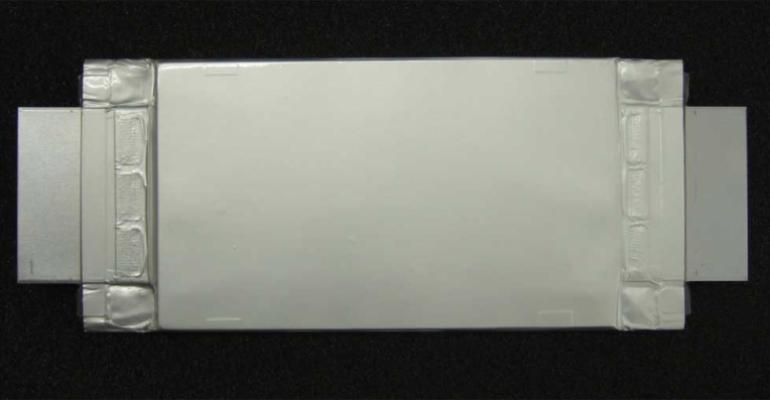Toshiba announces the development of its next-generation SCiB battery, which uses a new material to double the capacity of the battery anode.
The new 32-kWh battery offers high energy density and the ultra-rapid recharging required for automotive applications, the Tokyo-based electronics manufacturer says in a news release. It can give a compact electric vehicle a driving range of 198 miles (320 km) after only six minutes of ultra-rapid recharging – three times the distance possible with current lithium-ion batteries, Toshiba says.
Toshiba launched the SCiB fast-charging Li-ion battery in 2008. For its next-generation SCiB, the company has developed a titanium niobium oxide anode material that has double the lithium storage capacity by volume of the graphite-based anodes generally used in Li-ion batteries.
The new battery is much less likely to experience lithium metal deposition during ultra-rapid recharging or even in cold conditions, a cause of battery degradation and internal short-circuiting, Toshiba says. Ultra-rapid recharging can be done in only 10 minutes in temperatures as low as 14˚ F (-10o C), the company says.
Toshiba’s current SCiB employs a lithium-titanium oxide anode and is known for its safety, long life and rapid charging characteristics. Besides vehicles, it is used in industrial and infrastructure applications, including railroad cars, elevators and power plants.
The next-generation battery is the result of a proprietary method for synthesizing and disarranging crystals of titanium niobium oxide and storing lithium ions more efficiently in the crystal structure. The anode of the next-generation SCiB produced through this approach has double the capacity of the anode of current Li-ion batteries.
“We are very excited by the potential of the new titanium niobium oxide anode and the next-generation SCiB,” says Osamu Hori, director-Corporate R&D at Toshiba. “Rather than an incremental improvement, this is a game-changing advance that will make a significant difference to the range and performance of EVs.
‟We will continue to improve the battery’s performance and aim to put the next-generation SCiB into practical application in fiscal year 2019.”





